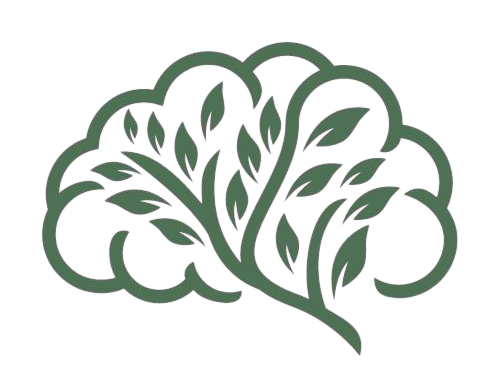Childhood is often described as a time of innocence, playfulness, and learning. However, for many individuals, this period is marked by trauma, leaving deep emotional scars in form of mental disorders that extend far beyond the early years. Childhood trauma, whether due to abuse, neglect, loss, or any other significant stressor, can profoundly affect mental health in adulthood. Understanding these effects is crucial for both individuals and professionals seeking to heal and support those impacted by such experiences.

Types of Childhood Trauma
Childhood trauma can take many forms, and it varies in intensity and duration. Some of them include:
- Physical Abuse: This involves intentional harm to a child, such as hitting, slapping, or inflicting physical pain.
- Emotional or Psychological Abuse: This type of trauma includes constant criticism, threats, rejection, or verbal attacks that undermine a child’s sense of self-worth.
- Sexual Abuse: Involving any inappropriate sexual behavior toward a child, sexual abuse can have long-lasting, detrimental effects on emotional and psychological development.
- Neglect: Neglect occurs when a child’s basic needs, such as food, shelter, safety, and emotional care, are not adequately met.
- Loss of a Parent: Whether due to death, divorce, or abandonment, losing a caregiver can result in profound feelings of insecurity, abandonment, and fear.
- Exposure to Domestic Violence: Witnessing violence between parents or other family members can instill fear, confusion, and a sense of helplessness in children.
- Community or Environmental Trauma: Events such as wars, natural disasters, or growing up in unsafe neighborhoods can also cause childhood trauma.
Each of these traumas has the potential to disrupt a child’s sense of safety and security, often leading to severe psychological challenges that persist into adulthood.
How Childhood Trauma Affects Brain Development
Childhood is a critical period for brain development. Traumatic experiences can interfere with the brain’s development, particularly in areas that govern emotions, cognition, and behavior.
The brain’s amygdala, responsible for processing emotions like fear, and the hippocampus, crucial for memory, may be altered due to trauma. When exposed to chronic stress, these areas of the brain become hyperactive, leading to heightened states of anxiety, fear, and hypervigilance. Over time, this can result in difficulties in emotional regulation, making it hard for individuals to manage stress or respond appropriately to various situations.
Additionally, trauma during childhood affects the development of the prefrontal cortex, the part of the brain responsible for decision-making, problem-solving, and impulse control. This often contributes to issues with judgment, risk-taking behaviors, and trouble forming healthy relationships later in life.
Long-Term Effects of Childhood Trauma
The long-term effects of childhood trauma manifest differently in adults, depending on the type, duration, and severity of the trauma. Some of the most common mental disorders linked to childhood trauma include:
- Depression: Many adults who experienced childhood trauma report feelings of hopelessness, sadness, and persistent low mood. Trauma can change the way the brain processes emotions, leading to chronic depression.
- Anxiety Disorders: Chronic anxiety is a common outcome of childhood trauma. Many individuals experience heightened sensitivity to potential threats and may have constant feelings of worry, fear, or unease.
- Post-Traumatic Stress Disorder (PTSD): In some cases, childhood trauma can lead to PTSD, where individuals experience flashbacks, nightmares, and severe anxiety related to the traumatic event.
- Difficulty in Relationships: Trauma can impact the ability to trust and form secure, healthy relationships. Individuals who have experienced childhood trauma may struggle with intimacy, setting boundaries, or maintaining stable relationships due to a fear of abandonment or betrayal.
- Substance Abuse: Some individuals may turn to drugs or alcohol as a way to cope with the pain or numb the emotions related to childhood trauma.
- Personality Disorders: Borderline personality disorder, in particular, is often linked to childhood trauma. Individuals with this disorder may exhibit mood instability, intense interpersonal conflicts, and a fear of abandonment.
- Self-Harm and Suicidal Tendencies: The emotional pain resulting from childhood trauma may also lead to self-destructive behaviors or thoughts of suicide, as individuals struggle to cope with overwhelming emotions.
Healing from Childhood Trauma
Addressing these bad experiences through therapy and other forms of emotional support can help individuals break free from the pain of their past.
- Therapy: Cognitive Behavioral Therapy (CBT), Eye Movement Desensitization and Reprocessing (EMDR), and Trauma-Informed Therapy are commonly used therapeutic approaches to help individuals process and heal from trauma. Therapy allows individuals to understand the impact of trauma on their behavior and emotions, while equipping them with the tools to cope and move forward.
- Mindfulness and Meditation: These practices help individuals stay grounded in the present moment, reducing the tendency to relive traumatic experiences or worry excessively about the future.
- Building Healthy Relationships: Establishing trust with others, whether in friendships or romantic relationships, is vital for healing. Learning to communicate openly, set boundaries, and foster mutual respect can help trauma survivors rebuild a sense of security and stability.
- Self-Care and Wellness: Prioritizing self-care, such as regular exercise, a balanced diet, and adequate sleep, can help individuals manage stress and improve emotional well-being. Creative outlets like journaling, art, or music can also be therapeutic.
- Support Groups: Connecting with others who have gone through similar experiences can be an empowering and validating experience. Support groups provide a safe space to share, learn from others, and build resilience.
Breaking the Silence Around Childhood Trauma
Perhaps one of the most important steps in addressing childhood trauma is breaking the silence surrounding it. Many people who have experienced trauma in their early years feel a deep sense of shame, guilt, or fear about discussing it openly. This silence often perpetuates the emotional pain, preventing healing. Encouraging open dialogue and creating supportive environments where trauma survivors feel safe to share their experiences can be transformative, both for individuals and for society at large.
Conclusion
Childhood trauma can have long-lasting effects on adult mental health that can lead to various mental disorders, shaping the way individuals think, feel, and interact with the world. However, with the right support, understanding, and intervention, it is possible to heal from the emotional wounds of the past. Breaking the cycle of trauma requires courage, but it opens the door to a more fulfilling, emotionally stable, and healthy life. Recognizing the profound impact of childhood trauma is the first step in a journey toward recovery and growth.

